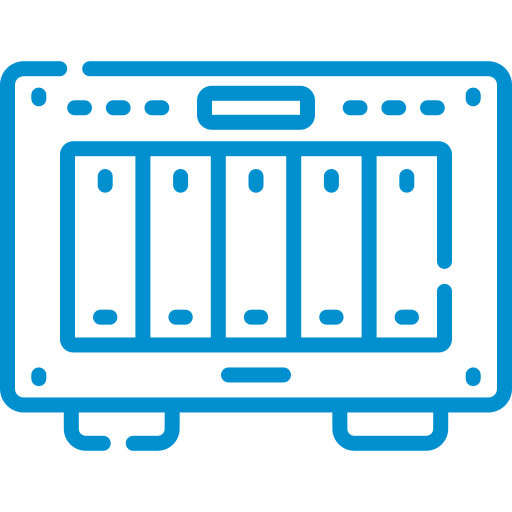Some risks are a thrill. Placing a responsible bet on your favourite sports team could give you a win or you could lose a little change with nothing to worry about the next day. Taking a chance on your business could be a different story. The stakes are higher. Your business data is not something you want to take a chance on.
So, how do we protect our data and give ourselves the peace of mind that if something were to go wrong, we would be okay? The first step to minimising the risk of data loss is to build a backup system for your digital environment.
Step 1: Choose your backup methods
To create a solid backup system, you will need at least two locations. We recommend one local backup and one cloud backup. A local backup stores data locally on a physical device such as a hard drive or specialised backup unit. A cloud backup stores data digitally in the cloud which is an online space allowing you to secure and access your data on multiple devices.

The benefits of a local backup are speed, accessibility, and control over its physical security. Backup drives are quick to backup data and faster to retrieve data from than cloud backups. Keeping local backups at your primary site of operation makes it easy for your staff or IT Team to access and utilise when required, plus you retain control over the physical security of the backup device.
In contrast, physical security may not prevent your backup unit from damage should a natural disaster or attack occur. If your local backup is destroyed in a fire, for example, you will not be able to recover your data. Beyond this, a local backup system requires cybersecurity protection to prevent cyberattacks on your data. The good news is, it is easy to protect your system from cyber threats with the right cybersecurity software.

The benefits of a cloud backup are wide-range accessibility, reliability, simple management, and scalability. When data is stored in the cloud, it is able to be accessed from any internet-connected device. This can be a lifesaver in the event your local backup is offline as your team retains full access to the data and can work from anywhere. Additionally, you are getting the in-built security of the backup device or provider for further reliability.
Cloud backups are easy to manage and generally require less effort to implement depending on your organisation’s requirements. The great benefit of having a non-physical backup system is the ability to customise and scale up or down as your business requirements change. If you have a growing team and need more storage, you can upgrade in a few clicks online instead of buying a whole new physical system.
Step 2: Create a schedule
How often your data is backed up will affect the recovery in the event something goes wrong. Frequent backups will give you the best chance at recovering the most data. If your business is breached or experiences a power outage, for example, your data can only be recovered up to the most recent backup.
Your backup schedule is completely customisable as different organisations have different requirements. Running backups in the background will not interrupt productivity. Depending on your needs, we recommend implementing backups to initiate either daily or hourly. This can be during office hours or 24/7, or you can opt for a combination of hourly during the working day and daily on the weekends. This choice is individual to the business.
Step 3: Over to your IT provider
That’s all you need to do! Your IT provider will monitor your backups and periodically test your systems to make sure all is working as it should. As your business needs change, speak to your provider about expanding, cutting back, or altering the cybersecurity software.
We partner with Microsoft, Datto, and Veeam to provide reliable backup systems and look after them so you can enjoy peace of mind. If a team member accidentally deletes a file, you are impacted by a natural disaster, or fall victim to a data breach we are here to help you recover. Chat to us today about creating a backup system.




